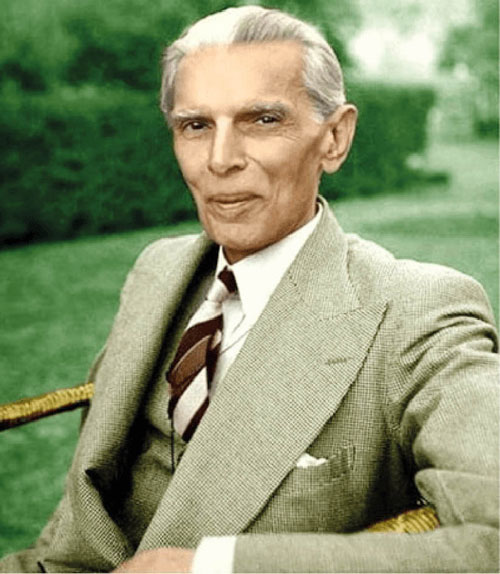Iftikhar Hussain Jazib
QUAID-e-Azam Muhammad Ali Jinnah joined All India Muslim League in 1913, an acclaimed lawyer, he had already started his political career from the platform of Indian National Congress. He played an instrumental role in Lucknow Pact, a joint political venture of Muslim League and Congress in 1916.On this occasion, for producing unprecedented unity between Muslim League and Congress, he was given the title of “Ambassador of Muslim-Hindu Unity” by Sarojni Naidu.
However, he decided to leave Congress in 1920, as its conflicts with Muslim league over critical issues had become problematic. Hence, Quaid became anaccredited leader of Muslims only and all the Muslims of British India attached their hopes with his political acumen. Without any doubt, Balochistan region of British India was the most backward and unrepresented area of Muslims at that time, people recognize Mr. Jinnah as a redeemer Spontaneously.
Quaid-e-Azam was well aware of the contours of political situation in Balochistan, he was the first top political leader of British India who advocated for the rights of people of this region. he demanded reforms in Balochistan like other regions of British India in Delhi Muslim Proposals in 1927. Going a step further, in famous 14 Points of Jinnah, he demanded status of a province for Balochistan in 1929. At the time, political awakening was gaining momentum in Balochistan, the most popular demand was the introduction of constitutional and political reforms like other provinces of British India, Quaid’s political schemes were warmly welcomed in the region.
Mr. Jinnah’s Delhi Muslim Proposals and 14 Points mainstreamed the case of Balochistan, thus, he made deep imprints on the hearts and minds of the people of Balochistan. As Balochistan had become unequivocal part of Quaid-e-Azam’s vision for the Muslims of British India, all the leaders of Muslim League became activists for its rights. When Allama Muhammad Iqbal presented the concept of independent Muslim state in his Allahabad sermon in 1930, Balochistan was clearly mentioned as a part of this state. Moreover, in his 1933 pamphlet, Ch Rehmat Ali elaborating the nomenclature “Pakistan”, pointed out that “tan” represents Balochistan in the name of independent state for the Muslims. Above all, Muslim League’s bond with Balochistan was based on strong grounds of Quaid’s personal relations with some of leading figures in the region.
Mr. Jinnah was a lawyer of Khan of Kalat, Mir Ahmed Yar Khan, Nawab Mir Yusuf Aziz Magsi had also been meeting him. Mir Jaffer Khan Jamalihad become a close associate of Quaid. As dividends of these relations, the process of the establishment of Balochistan Muslim League was initiated by the people of Balochistan at their own and Muslim League responded to the call of the people.
With Quaid-e-Azam’s acceptance, the first Balochistan Muslim League Conference was held in Quetta at McMohan Park on 10-11 June, 1939. Quaid sent prominent Muslim leaders, Nawab Bahadur Yar Jang, Maulana Abdul Hamid Badayuni, Maulana Zafar Ali Khan and Liaquat Ali Khan, to Balochistan to study the situation and present the Muslim League viewpoint to the Muslim masses of the area. They toured the area and helped turn the public opinion in favour of the Muslim League point of view. As a result, when Muslim League decided to put forward the demand for a separate homeland for the Muslims in its Lahore session in March 1940, a strong contingent from Balochistan participated in the historic session to support Pakistan Resolution.On Quaid’s advice, Maulana Abdul Hamid Badayuni visited Balochistan to project and popularize the idea of Pakistan and to explain the Lahore Resolution to the Baloch masses. During his visit from 18 to 22 April, 1940, Maulana Badayuni addressed public meetings and strongly advocated for Pakistan. Thus, Balochistan became integral part of idea of Pakistan.
Quaid-e-Azam showed special attachment with Balochistan, he was the first top political leader of British India to visit Balochistan. In 1943, he toured the region for three weeks, from 26 June to 18 July. Quaid inaugurated the annual session of the BALOCHISTAN MUSLIM LEAGUE held on 3 July, 1943. In his address, Quaid said: “Muslim League has placed before you a clear cut goal of Pakistan”. During his Kalat visit, the Khan of Kalat offered warm hospitality and pledged to support him to achieve his goal of Pakistan. On this occasion, Quaid and Fatimah Jinnah were weighed in Silver and Gold, the amount was donated in ALL INDIA MUSLIM LEAGUE Fund.
To the end of this tour, Quaid instructed Muslim League to prepare a report, Balochistan, Case and Demands.Quaid-e-Azam visited Balochistan for the 2nd time from 14 September to 20 October, 1945. on 26 September, 1945, addressing a large public meeting in Quetta, Quaid appealed to all the tribal Sardars to join the Muslim League so that Pakistan could be established at the earliest. Nawab Mohammad Khan Jogezai and Meer Jafar Khan Jamali assured Quaid-e-Azam of complete support for Pakistan.
The sincerity of Quaid-e-Azam’s leadership and the love of Balochistan’s general masses for him played decisiverole in the Final Political Battle for Pakistan. In accordance with 3rd June Plan, on 29 June, 1947, the members of the Shahi Jirga of Baluchistan and elected members of the Quetta Municipal Committee assembled in the Town Hall, Quetta. The overwhelming public support for Pakistan convinced the Jirga to vote for Pakistan. Quaid-e-Azam’s personal clout over princes and their trust in him guided The fate of princely states,Kalat, Kharan, Lasbela and Makran.
All of these states acceded with Pakistan in March 1948 in accordance with the aspirations of their masses. Balochistan completes Pakistan, as Quaid-e-Azam was the first leader to rule the hearts and minds of Baloch masses, he delivered their rights and gave them an identity in the world. In this untiring struggle, his health deteriorated, he spent last 2 months of his life in Ziarat and Quetta until his soul left for eternal abode on 11 September, 1948.
—M.Phil international Relations from Quaid-e-Azam University, the writer is a freelance contributor.








